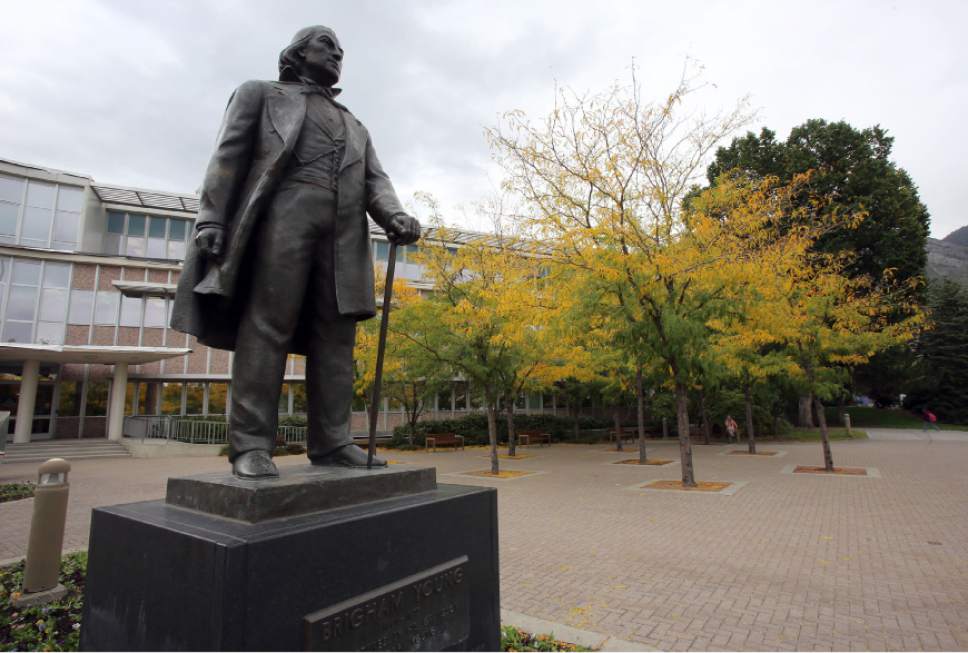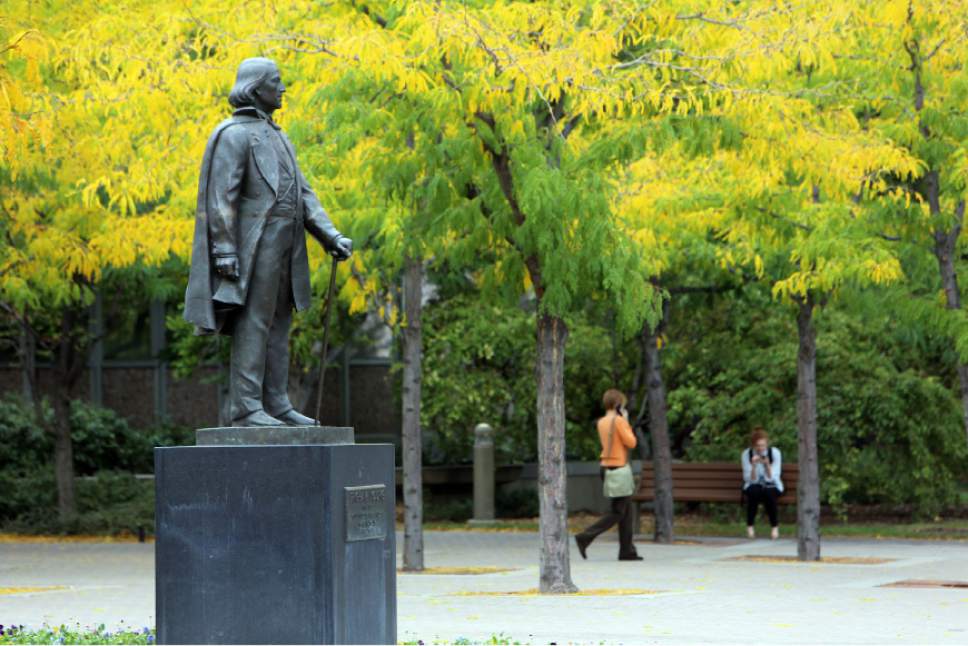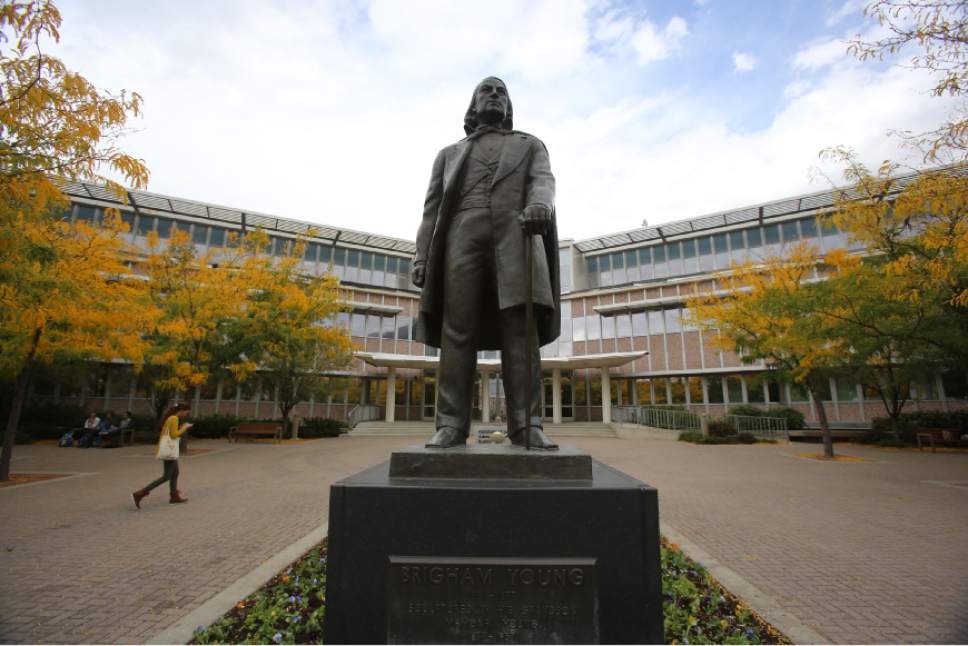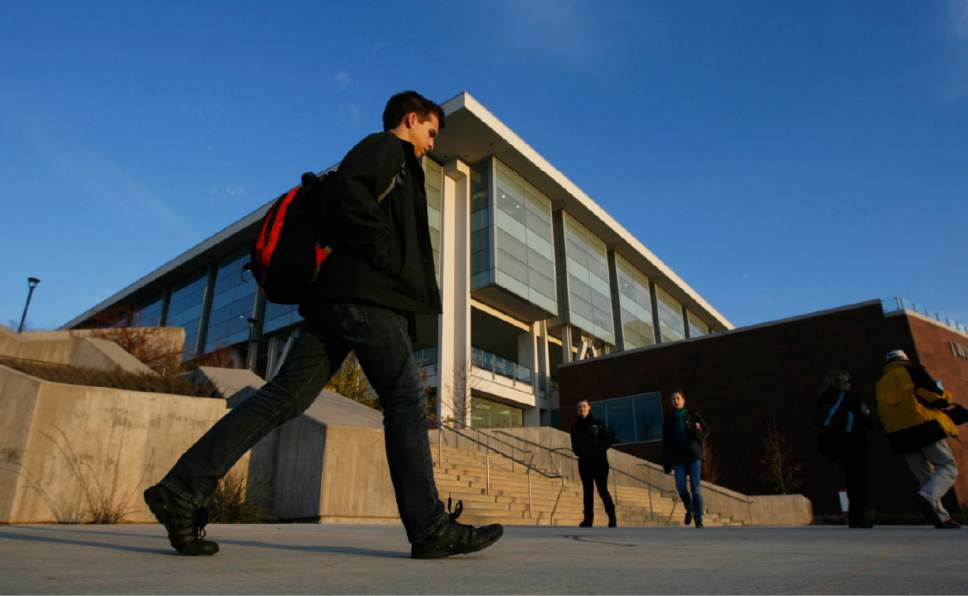This is an archived article that was published on sltrib.com in 2017, and information in the article may be outdated. It is provided only for personal research purposes and may not be reprinted.
To some, it seems a no-brainer: The more educated you are, the less likely it is that you will be religious.
Not so fast, ye skeptics.
While analysis of Pew Research Center surveys shows that conventional wisdom generally applies to the U.S. population, it does not when specifically focused on the 71 percent of Americans who identify as Christians — and particularly Mormons.
The new analysis, released Wednesday, is the result of deeper mining by Pew researchers of their recently completed Religious Landscape Study.
"Among Christians, those with higher levels of education appear to be just as religious as those with less schooling, on average," researchers stated. "In fact, highly educated Christians are more likely than less-educated Christians to say they are weekly churchgoers."
Their analysis shows that among Christians, college graduates tend to be about as religiously observant, sometimes more so, as those with less schooling. More than half (52 percent) of college-graduate Christians attend religious services weekly, compared with 45 percent of believers with "some college" and 46 percent of those with high school level or less education.
About 70 percent of college-graduate Christians report high levels of overall faith commitment (measured by belief in God, the importance of religion in one's life and the frequency of prayer and worship attendance). Those with some college were at 73 percent commitment, while those with high school or less education were at 71 percent.
Mormon graduates were highest among Christians in commitment (92 percent), with "some college" respondents at 91 percent and high school or less at 78 percent.
Evangelical Protestant graduates' commitment levels (87 percent) were nearly as strong, and about the same as those with some college (83 percent) and high school graduates (82 percent). Mainline Protestant grads came in at 54 percent, with "some college" respondents at 57 percent and high school or less at 55 percent.
Catholics at all educational levels seemed consistent in retaining their faith, with results ranging from 62 percent of college grads to 61 percent with some college, and 60 percent with high school or less.
Among non-Christians, Pew found that Jewish college graduates overall were less likely than their less-educated co-religionists to retain an "absolute" belief in God (28 percent compared with 54 percent). When broken down by Orthodox and non-Orthodox flavors of Judaism, however, graduates of the former tradition kept the faith far more consistently (82 percent to 23 percent).
Among Muslims, the retention of belief in God was far more consistent: college grads (95 percent) and those with some college (99 percent) and high school or less (95 percent) were nearly identical in commitment to faith.
Overall, including all categories along the believer-to-skeptic continuum, fewer than half (46 percent) of college graduates consider religion "very important" in their lives.
Those will some college come in at 53 percent, while those with no more than high school educations are at 58 percent. And 75 percent of college graduates identify with some religion, about the same as those with some college (76 percent) and high school (78 percent).
Researchers did find that more college graduates (11 percent) end their campus days as atheists or agnostics than those with some college (8 percent) or high school (4 percent).
Most of the results analyzed came from surveys of more than 35,000 Americans reached on randomly dialed cellphones and landlines.
Twitter: @remims











